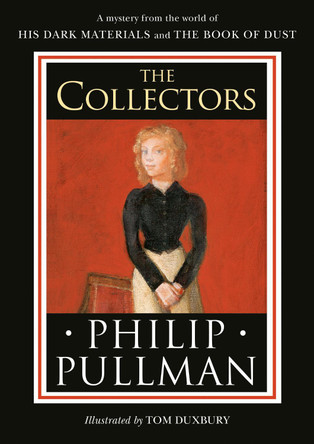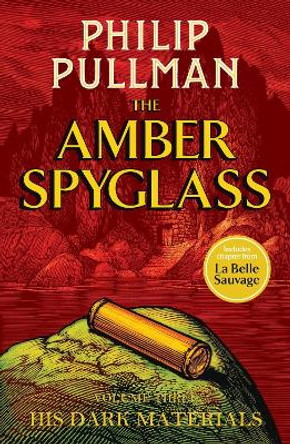Description
The book informs readers about the contexts, sources and influences behind the trilogy, and examines the controversies and debates that have surrounded the trilogy and its creator, since its publication.
About the Author
Claire Squires is based at the University of Oxford, and also teaches at Oxford Brookes University. She previously worked at Hodder and Stoughton Publishers.
Reviews
Claire Squires investigates and clarifies many perplexing ambiguities in Pullman's trilogies. The wealth of information makes this an important source book for Pullman's readers. Especially valuable is her incisive selection of comments from Pullman himself, drawn from interviews and other informal writings, which open exciting dimensions for interpretation of the trilogy. Encyclopedic in its range, the book stretches from factual detail to an overview of theoretical analysis, includes significant biographical and bibliographical materials, and even explores adaptations of the trilogy into other media. Highly readable, and impressive in its extensive scope and detail, this book is a "must have" for all Pullman enthusiasts. - Dr. Carole Scott, editor of His Dark Materials Illuminated: Critical Essays on Philip Pullman's Trilogy -- Dr. Carole Scott, San Diego University
For anyone wishing to know more about Philip Pullman's dazzling virtuosity as a story teller, this book is an essential read...A comprehensive guide which will have wide audience appeal to students of children's literature and to all those who have been enthtralled and captivated by his stories. ...fascinating and highly readable... [Squires's] masterly treatment of the complexity, compelling narratives and energetic plots of his stories can only serve to whet his readers' appetites still further. Diane Duncan, National Association for the Teaching of English (NATE), June 2007 -- Diane Duncan
"Squire's narrative investigates and clarifies many perplexing ambiguities in the trilogy in a very readable way, explaining difficult points, elucidating complex detail, and explaining the storyline and its implications. Her use of Pullman's comments and those of his critics are intelligently chosen to provide a dimensional and informed commentary that will support readers' understanding of the monumental work. And the theoretical questions she raises will provide direction for readers who want to ponder literary aspects of the trilogy. She is appreciating the trilogy as the work of a master storyteller rather than attempting to push the boundaries of critical thinking." -Children's Literature Association Quarterly, Fall 2007 VOl. 32 No 3 -- Carole Scott
"Claire Squires's Philip Pullman, Master Storyteller: A Guide to the Worlds of His Dark Materials is a significantly re-envisioned as well as updated version of an earlier Pullman guide that she published in 2003 (Philip Pullmans' His Dark Materials Trilogy: A Reader's Guide, also through Continuum)...In this latest guide, we are granted a guided tour of key issues that have been raised in the assessment of Pullman's trilogy b fans, scholars, journalists, social respondents, and Pullman himself...Consider its range of coverage: The guide addresses all of the major questions currently on the map about His Dark Materials...She provides a treatment of the major symbolic aspects of Pullmans' fantasy as well, explaining daemons, the alethiometer, dust, witches, armored polar bears, the subtle knife, multiple worlds, and so on...For further exploration, in addition to the cited works Squires has even provided recommendations for further reading, Web sites and online resources, and a full index. Given the guide's readable and fast-moving prose to boot, I'll go so far as to say that, as a first dip into the growing critical pool of commentary on His Dark Materials, popular or scholarly, readers can do no better." -Kelly Searsmith, Journal of the Fantastic in the Arts, 18.3
"Claire Squires's Philip Pullman, Master Storyteller: A Guide to the Worlds of His Dark Materials is a significantly re-envisioned as well as updated version of an earlier Pullman guide that she published in 2003 (Philip Pullmans' His Dark Materials Trilogy: A Reader's Guide, also through Continuum)...In this latest guide, we are granted a guided tour of key issues that have been raised in the assessment of Pullman's trilogy b fans, scholars, journalists, social respondents, and Pullman himself...Consider its range of coverage: The guide addresses all of the major questions currently on the map about His Dark Materials...She provides a treatment of the major symbolic aspects of Pullmans' fantasy as well, explaining daemons, the alethiometer, dust, witches, armored polar bears, the subtle knife, multiple worlds, and so on...For further exploration, in addition to the cited works Squires has even provided recommendations for further reading, Web sites and online resources, and a full index. Given the guide's readable and fast-moving prose to boot, I'll go so far as to say that, as a first dip into the growing critical pool of commentary on His Dark Materials, popular or scholarly, readers can do no better." -Kelly Searsmith, Journal of the Fantastic in the Arts, 18.3
It has been 10 years since The Golden Compass (Knopf, 1996) first appeared in the United States. Embraced by critics and readers alike, the book grew into a trilogy known as "His Dark Materials," which placed Pullman in the forefront of a rising tide of hefty fantasy cycles, just ahead of the "Harry Potter" series. Squires covers every aspect of the Pullman phenomenon, examining the success of the series from many angles-characterization, theme, setting, and storytelling skill-as well as adaptations to stage and screen. Of particular interest is her chapter on "Intertextuality," which discusses literary influences on Pullman's writing, both his acknowledged references to Milton and Blake and the connections critics have noted to writers of folktale, fantasy, and science fiction. Squires does not shy away from the controversy that Pullman's themes have stirred up-his apparent diatribe against religion in the form of "the Authority" and the Magisterium, and the ending of the trilogy in which Lyra and Will must part ways forever-and she refers to many direct quotes from Pullman himself as well as commentators on the series. A chapter on the author's other writing (which includes historical fiction, fantasy, adventure, and contemporary fiction as well as adult novels) and an extensive bibliography of books and articles about his work round out this accessible study. -- Connie C. Rockman, Stratford Library Association, CT * School Library Journal *
Book Information
ISBN 9780826417169
Author Claire Squires
Format Paperback
Page Count 256
Imprint Continuum International Publishing Group Ltd.
Publisher Bloomsbury Publishing PLC
Weight(grams) 300g









